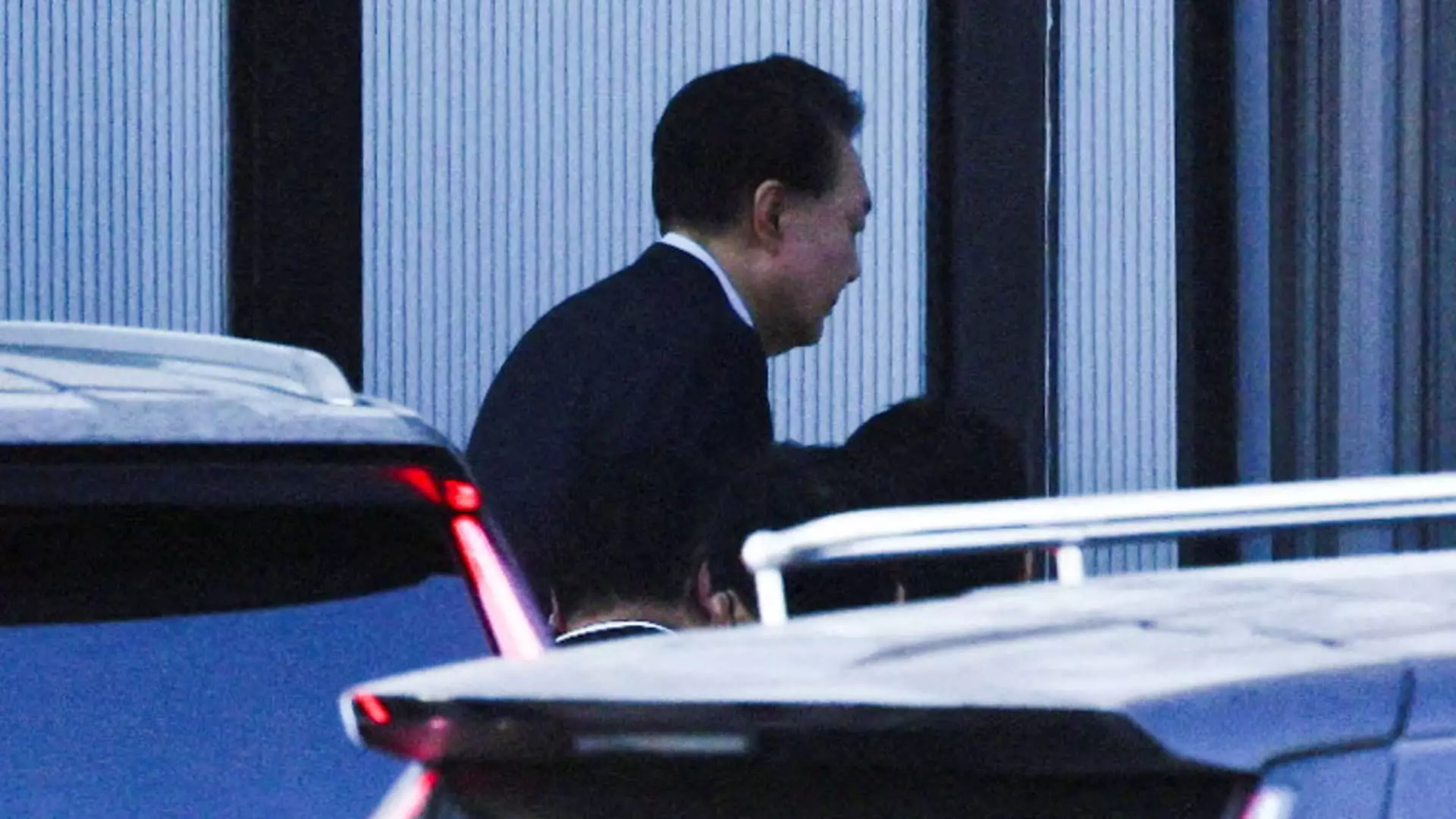The political landscape in South Korea has recently been shaken by the unprecedented legal woes of President Yoon Suk Yeol. His imprisonment marks a dubious milestone, as he became the first sitting president in the nation’s history to be arrested. The circumstances surrounding his detainment are deeply intertwined with a controversial declaration of martial law he made on December 3, raising serious questions about the balance of power and the rule of law in the country. Yoon’s actions at that time have ignited a fierce investigation by the Corruption Investigation Office for High-ranking Officials, culminating in charges of insurrection—a grave accusation given the implications for national stability.
On a day that could dictate his political future, Yoon attended a court hearing aimed at contesting a request by the investigators to extend his detention by up to 20 days. The atmosphere was electric; as Yoon arrived at the Seoul Western District Court, he was flanked by a convoy of vehicles, illustrating the monumental public interest in his case. The hearing itself lasted almost five hours, during which Yoon was given the opportunity to articulate his side of the narrative. According to reports from his lawyer, Yoon took this chance to vehemently deny the allegations against him and sought to clear his name by emphasizing the legitimacy of his earlier martial law proclamation.
Yoon’s predicament has galvanized a significant portion of the public, particularly among his supporters, who believe fervently in his right to preside and advocate for the rule of law. After the hearing’s commencement, a throng of his supporters gathered outside the court, chanting slogans demanding his release. This scene exemplifies the polarization within South Korean society regarding Yoon’s leadership; while many advocate for accountability in government, a loyal base staunchly defends the president as he navigates this legal labyrinth.
The implications of this case extend far beyond individual culpability; they touch upon the broader structural integrity of South Korea’s political system. The fact that Yoon faces charges that an incumbent president typically cannot be shielded from only heightens the stakes. As several individuals attempted to breach the court grounds, demonstrating both fervent support and unrest, it becomes apparent that Yoon’s legal challenges could set precedence for future administrations, potentially eroding the immunity traditionally granted to sitting presidents.
As the nation awaits the court’s decision, anticipated to be announced shortly after the hearing, the atmosphere is charged with uncertainty. Yoon’s lawyer expressed confidence in the arguments presented during the hearing, but the final verdict will ultimately determine the trajectory of both Yoon’s presidency and the public’s trust in the judicial system. This high-profile case has captured the global spotlight, serving as a reminder of the fragile equilibrium between authority and accountability within democracies, particularly when the stakes are as profound as they are in South Korea.


Leave a Reply